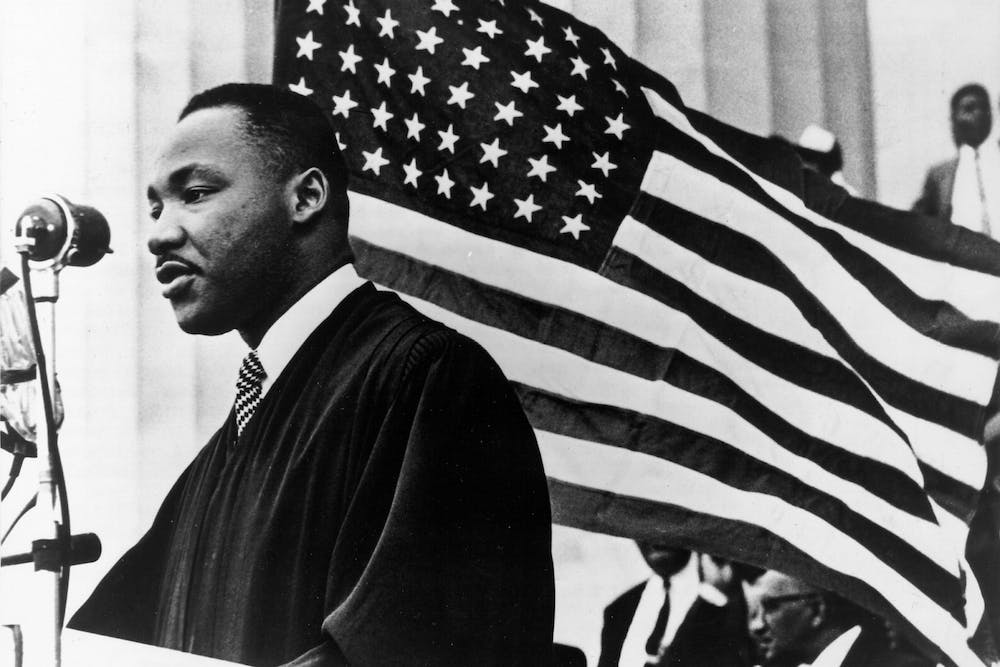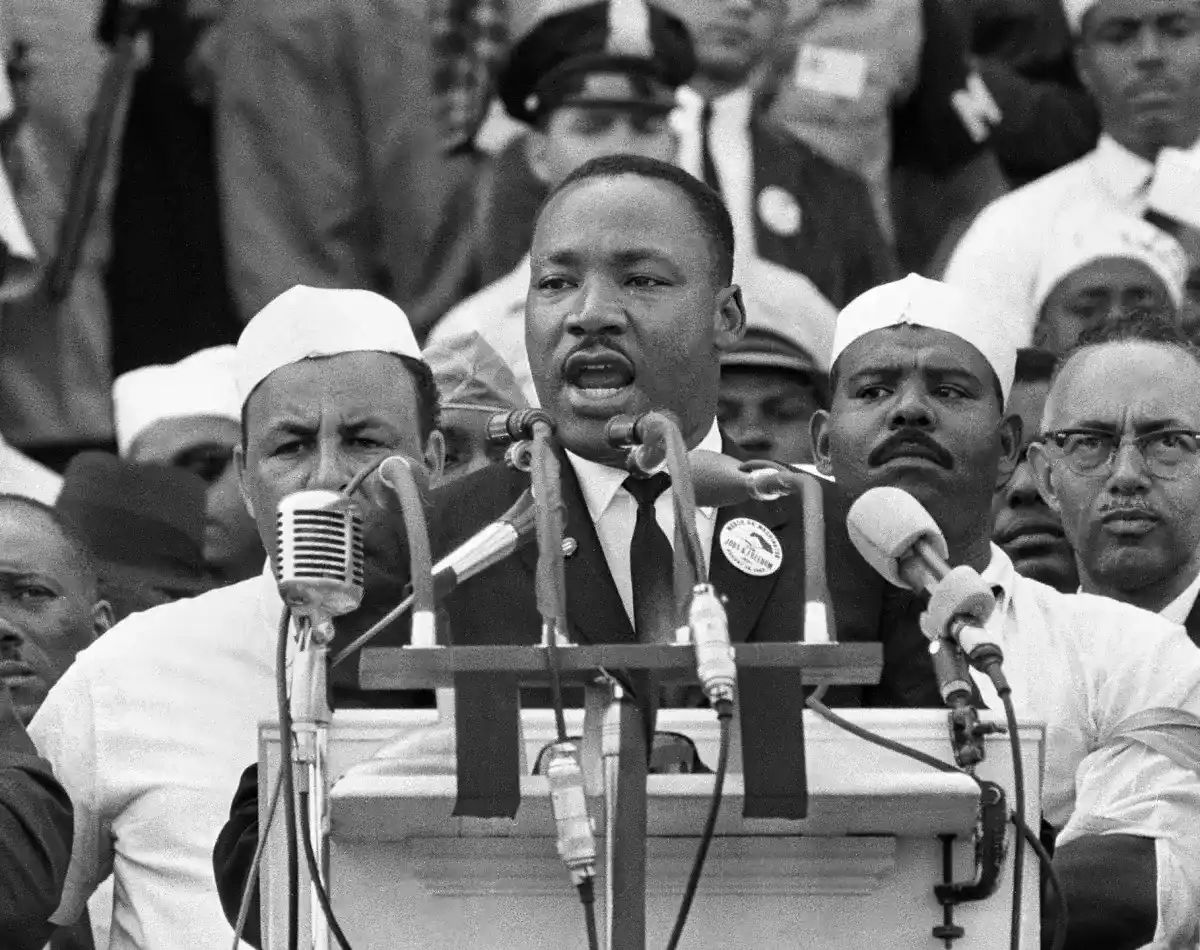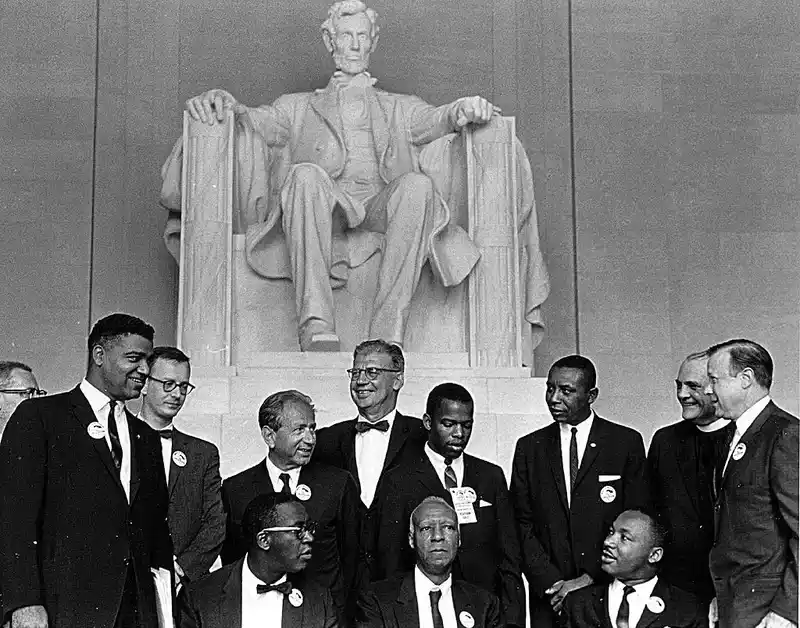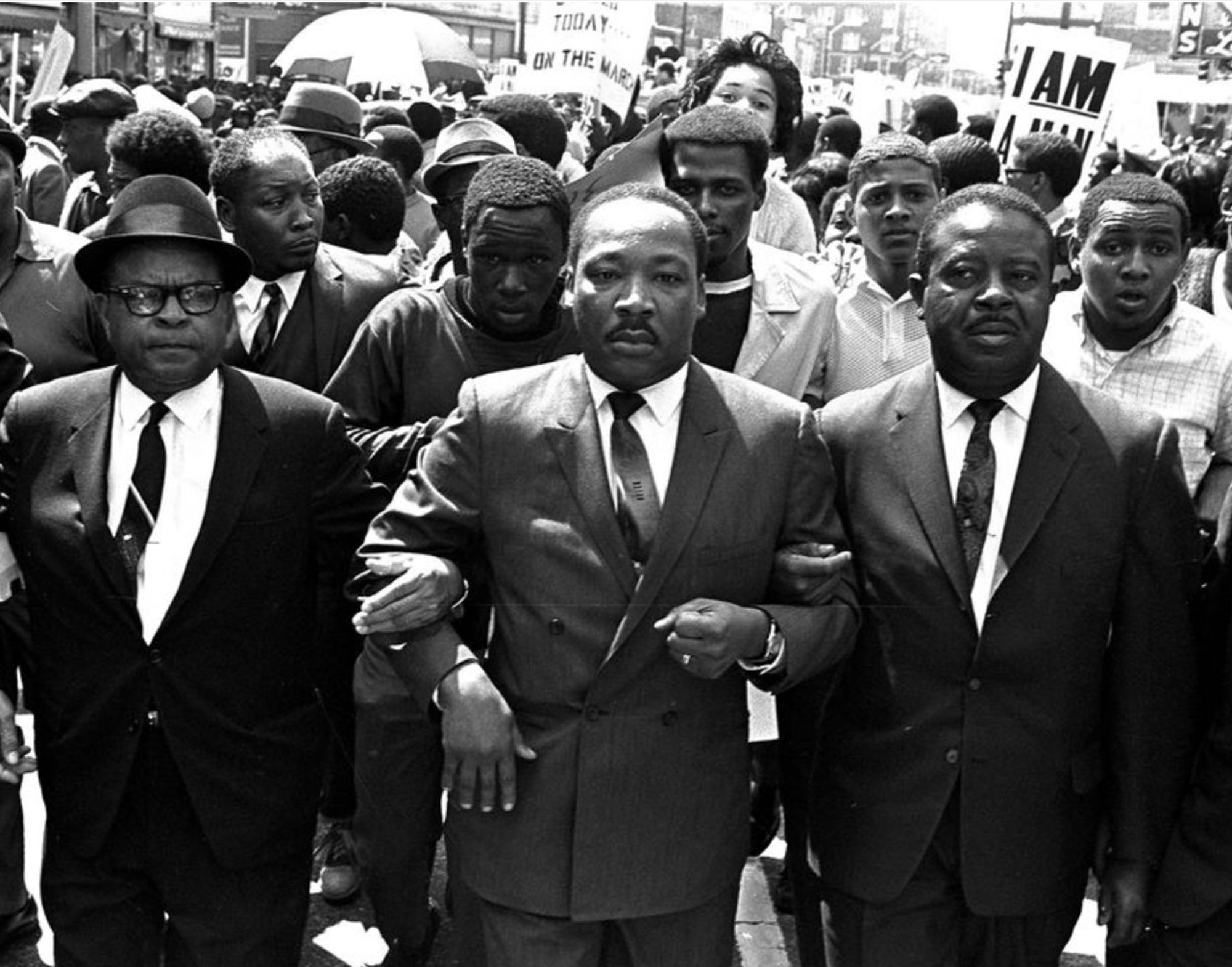The Enduring influence of MLK

RANCHO CORDOVA, Calif. --Some 100 years after President Lincoln freed slaves with the Emancipation Proclamation in 1863, social rights activist and Baptist minister, Martin Luther King, Jr. climbed the marble steps of the Lincoln Memorial before a crowd of more than 200,000 during the March on Washington on August 28, 1963. His goal was to push forward ideas of racial freedom not yet experienced since the emancipation.
His ‘I Have a Dream’ speech was an appeal to find solutions for continued inequalities visible in unemployment, discrimination, and economic injustice. His prepared speech on jobs and freedom was forgotten in lieu of a passionate, ad lib dialog about his dreams for the future of our country.
"MLK Day is time to celebrate what Dr. King’s leadership has done for us all," said Dr. Gregory Diggs, Director of Inclusion, Diversity, Equity, and Accessibility (IDEA) for the California Military Department. "To me, it is the annual renewal start date for rededication to do the hard work of promoting and increasing equity, equality, freedom, human rights, and justice in our schools, places of employment, towns, cities, country, and around the world."

Civil rights leader Martin Luther King Jr. addresses the crowd at the Lincoln Memorial in Washington, D.C., where he gave his "I Have a Dream" speech on Aug. 28, 1963, as part of the March on Washington. AFP via Getty Images
Civil rights leader Martin Luther King Jr. addresses the crowd at the Lincoln Memorial in Washington, D.C., where he gave his "I Have a Dream" speech on Aug. 28, 1963, as part of the March on Washington. AFP via Getty Images
THE PRESENT
The evidence of King’s dream in the present day is showcased through diversity, equity and inclusion (DEI) programs. Human resource leaders across industries strongly encourage work environments to include DEI to create a healthier workplace for employees.
The California Military Department has been a trailblazer in championing DEI as it strives to become mission-ready and better serve its communities. Under the guidelines of the National Guard Bureau and the adjutant general, Maj. Gen. Mathew Beevers, the CMD has created specific working groups to champion these policies and changes.
One change was the creation of the I.D.E.A. program and hiring its program director, Diggs.
"I.D.E.A. is helping us prepare to transform the organization under the People First directorate,” said Diggs. “My goal is for us to do enough work to have planted and nurtured our practices and policies to change and flourish.”
"Before the creation and implementation of I.D.E.A., the military was guided by a federal policy requiring a joint diversity executive council," said Army Maj. Larry Rankin, CMD Executive Liaison to California Office of Emergency Services.
Rankin was a voice in the room in conjunction with performing academic research on diversity in the military.

Martin Luther King Jr. and other civil rights leaders gather before a rally at the Lincoln Memorial on Aug. 28, 1963, in Washington. National Archives/Hulton Archive via Getty Images
Martin Luther King Jr. and other civil rights leaders gather before a rally at the Lincoln Memorial on Aug. 28, 1963, in Washington. National Archives/Hulton Archive via Getty Images
THE PAST
Present-day notions like DEI have roots in the past, motivating iconic leaders like King to look for change. The power behind his words challenged and influenced people of all races to stand in unity for equal rights. His speeches—often considered some of the most iconic of the 20th century—had an acute effect on national consciousness.
“There’s nothing more impactful than a shared vision and desire to struggle together to overcome social, economic, or any significant challenge," said Rankin. "Dr. King’s biggest strength to me was his uncanny ability to bring people together and bond through shared struggles. This is something that continues to be important to me today.”
Although it has become more widespread in the past decade, the DEI concept and profession has been around for much longer, dating back to King’s time and on the heels of new equal employment laws and affirmative action policies.

Civil rights leader Martin Luther King Jr. moves through the crowd at the Lincoln Memorial in Washington, D.C., where he gave his "I Have a Dream" speech on Aug. 28, 1963, as part of the March on Washington. AFP via Getty Images
Civil rights leader Martin Luther King Jr. moves through the crowd at the Lincoln Memorial in Washington, D.C., where he gave his "I Have a Dream" speech on Aug. 28, 1963, as part of the March on Washington. AFP via Getty Images
THE RIPPLE
“King was the pillar that stood for equal rights," said Sgt. Maj. Deasmond Knight, Chief Religious Affairs Non-Commissioned Officer. "His leadership from years ago is embedded with those that followed up and passed down to today’s civil rights leaders. He had a dream we would all be treated equally and that dream continues to this very day. The reality of the dream is to continue the fight he started and not lose focus.”
“Dr. King’s influence can be seen when we, as a people, treat everyone with dignity and respect at all times, no matter the consequences" said Charmaine E. Betty-Singleton, Deputy General Counsel/Attorney-Advisor. "When we speak against injustice, advocate for those who are overlooked/unheard and fight for liberty and justice for all, we then see the continued influence and legacy of Dr. King in action.”
"Although the civil rights movement, as we understand it during Dr. King’s era, is now part of the history of all Americans," said Diggs. "It is an inspiration to the world, the fight continues as many are still engaged in an ongoing mission for equity and equality, freedom, human rights, and justice in the United States and around the world."
As a popular, transformative figure in the fight for equality and a champion of nonviolence, the ripples of King’s work and enduring influence are very much evident in today’s modern world.

